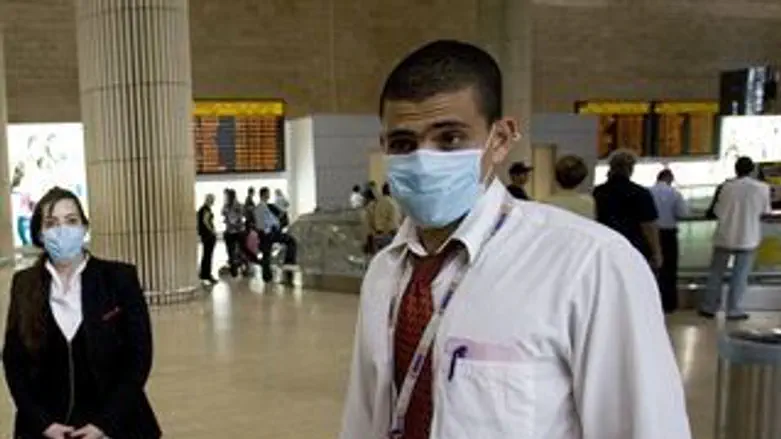
The first death this season from the influenza virus known as “swine flu” has occurred in Petah Tikvah.
A 3-year-old toddler died Monday at Schneider Children’s Medical Center after contracting the H1N1 virus that causes the disease, officials said.
The child had not received a vaccination to protect against the flu this year.
In the past week, at least four people have been admitted to hospital suffering from the same virus, all of the women. Two are listed in critical condition, health officials said.
H1N1 is now a seasonal form of influenza found in humans, and is included in the seasonal flu vaccine shot distributed each year in Israel.
The virus was originally called “swine flu” because the disease was similar to one found in pigs. It is spread from one person to the next through respiratory droplets, with symptoms typically lasting four to six days.
The symptoms include a low grade fever (38 C or 100 F) that may climb higher (not everyone becomes fevered, however), as well as a cough and/or sore throat. Also among the symptoms are a runny or stuffy nose, headaches and/or body aches, chills, fatigue and nausea, vomiting and/or diarrhea (most common in children.)
One can differentiate between the flu and a cold by realizing that flu symptoms are usually more intense than those of the common cold, according to Dr. Yuval Rabinovich, medical director of the Leumit health maintenance organization clinic (kupat holim) in Arad. Rabinovich advised readers to seek medical attention immediately if they experience difficulty breathing, shortness of breath, discoloration of the lips, pain or pressure in the chest or abdomen, sudden dizziness, confusion, severe or persistent vomiting, seizures or convulsions, or if the flu symptoms improve – but then return with fever and a worsened cough.
More than half a million people worldwide were killed by the disease in the 2009 pandemic, most in Africa and Southeast Asia, according to the World Health Organization.